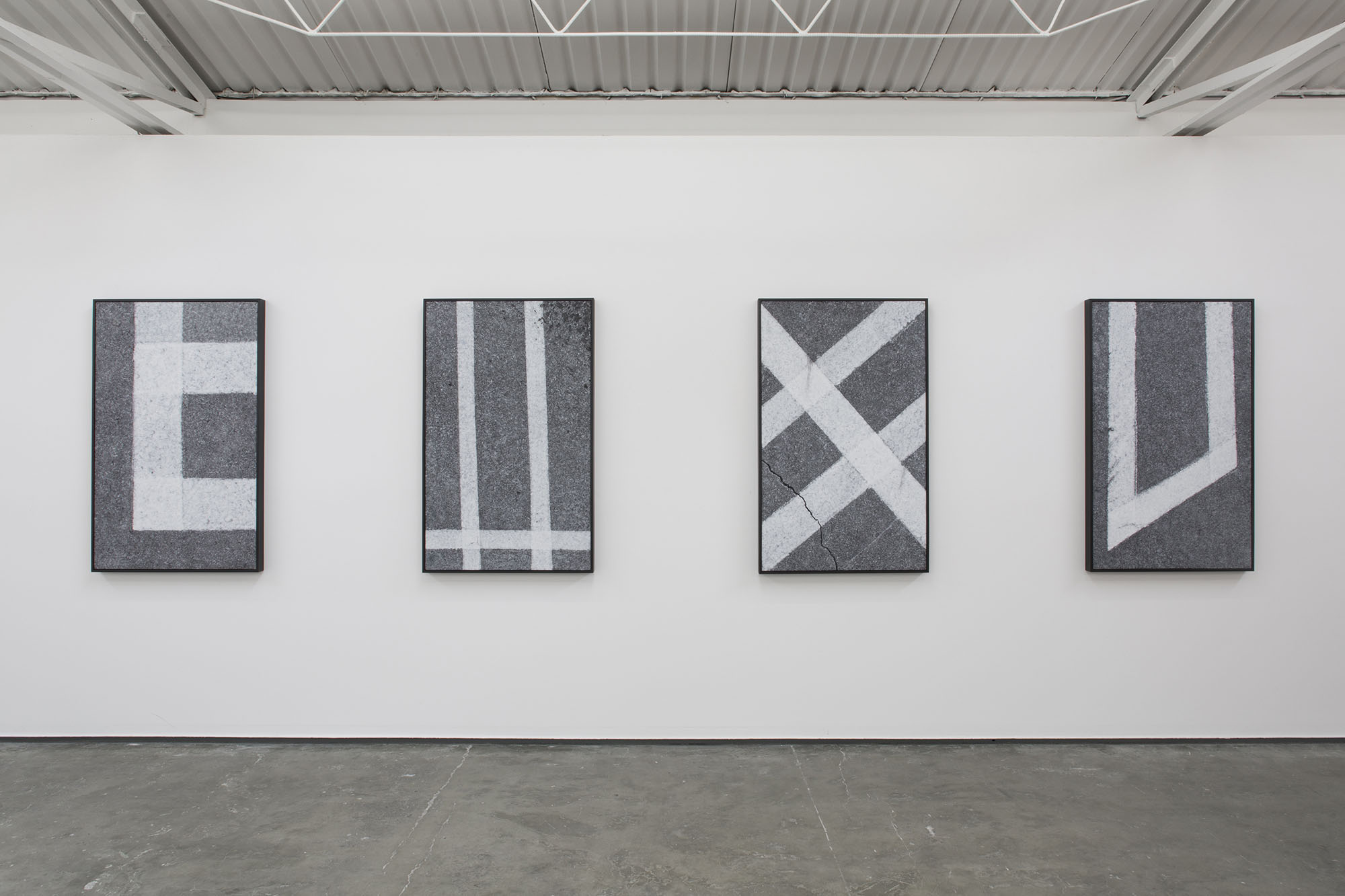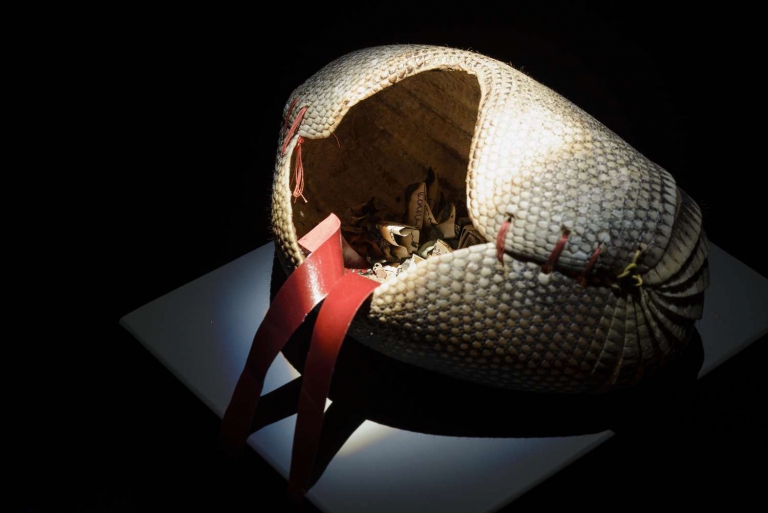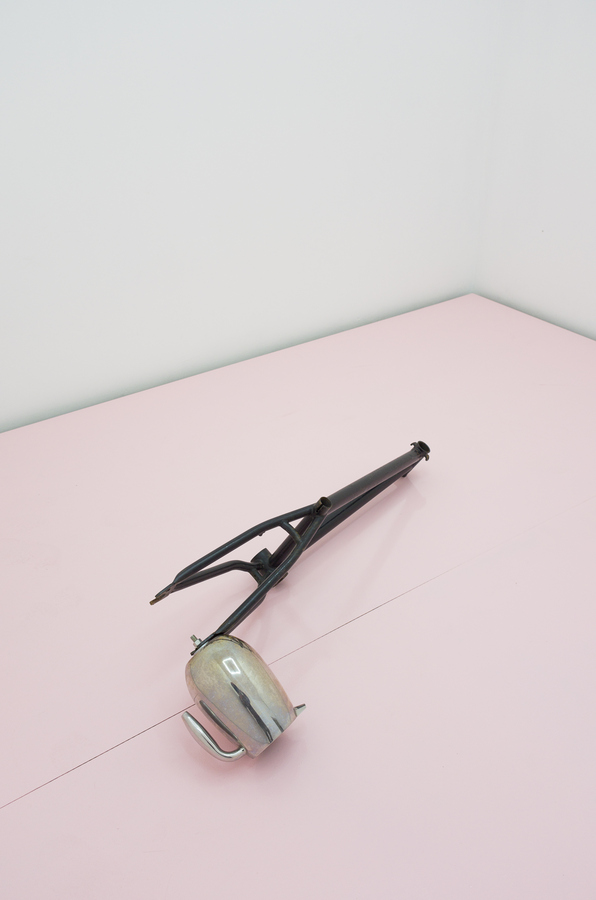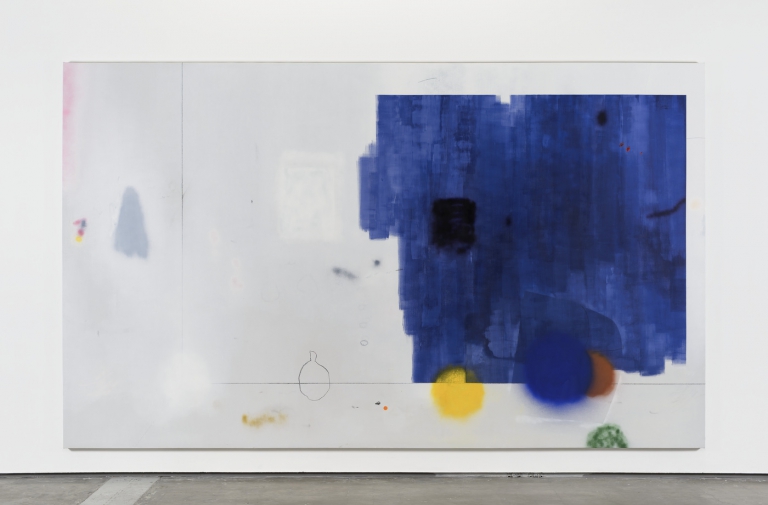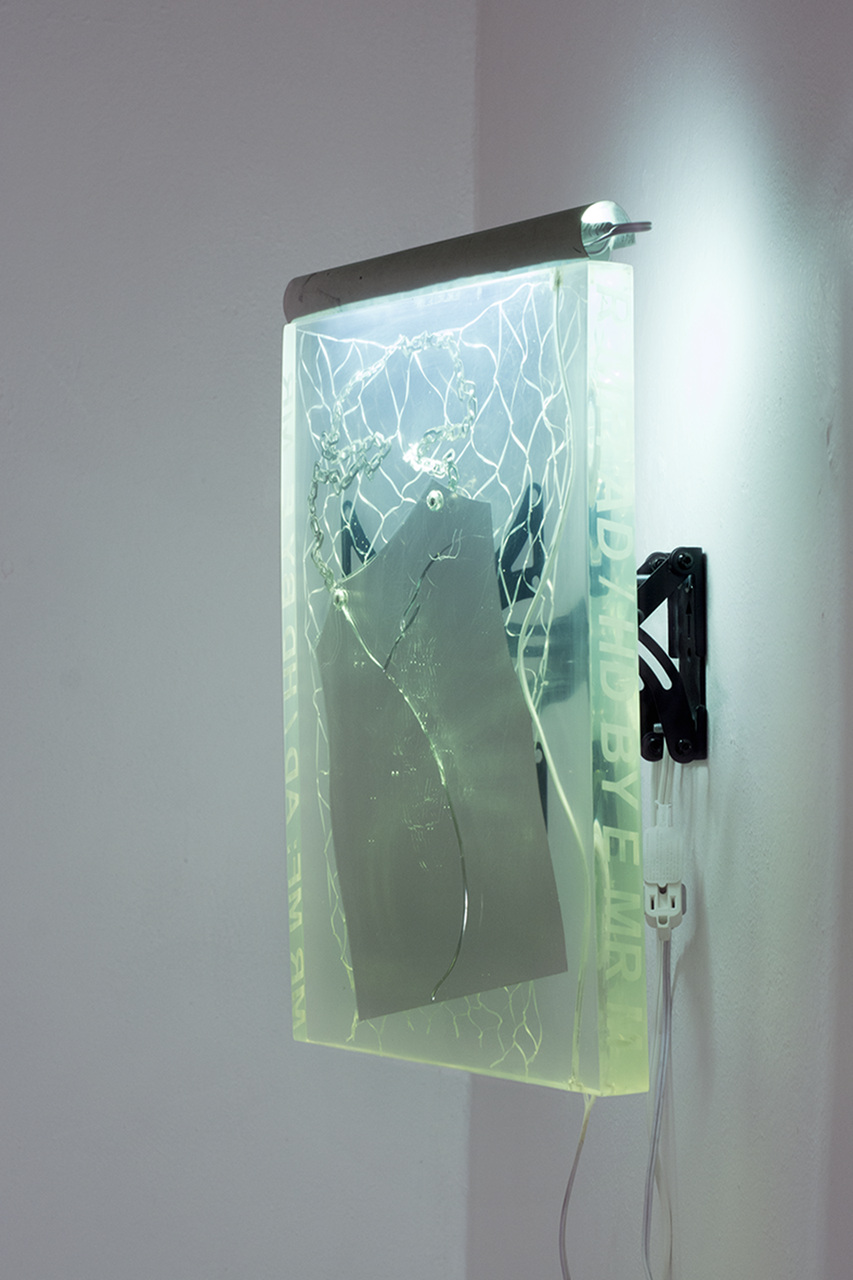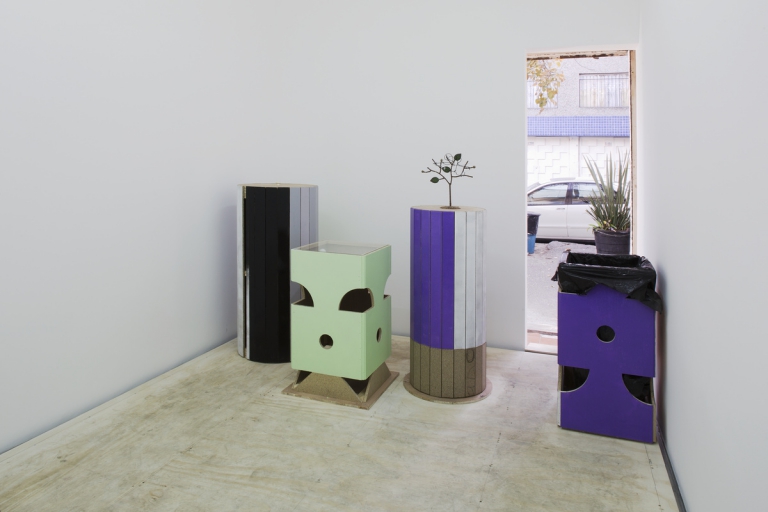Artist: Yoshua Okón
Exhibition title: Oraculo
Venue: Proyectos Monclova, Mexico City, Mexico
Date: January 23 – March 7, 2020
Photography: all images copyright and courtesy of the artist and Proyectos Monclova, Mexico City
Burn It All Down
by Helena Chávez Mac Gregor, IIE-UNAM
For three decades, Yoshua Okón’s work has explored how art can act like a bomb: how, through critique and satire, it can detonate an image that blows everything to pieces.
His work has evolved over the years. The irony that served as a form of rebellion in the 1990s later became a sophisticated means of unveiling. In his early works, forms of tension —whether racial, class-based, or political— operated as mirrors reflecting viewers’ social prejudices back at them. In more recent works, the intervention lies in puncturing these reflective surfaces in order to connect different processes, draw constellations of political and affective territories, and show how the most intimate aspect of our being is part of a complex domination machine.
Works like Oracle (2015) show us a land wracked by nationalism. In this video the artist restages one of the largest protests ever held in Arizona against the entry of unaccompanied migrant children to the U.S. The organizers of the protest, members of the Arizona Border Defenders militia, portray themselves in order to use the camera as an amplifier for their racist and xenophobic positions. Their assemblage enables us to look head-on at a fascism that displays itself shamelessly.
The other side of this machinery of submission is revealed in works like Fridge-Freezer (2015), in which consumerism and the promise of success associated with property ownership return as pure anxiety. The house, capitalism’s dream, shows its most claustrophobic face in the seriality of an image of family, domesticity, a home in which we find everything other than life. Through repetition, a landscape that has to represent that which must be sought after bursts into a panic attack.
While a lot of contemporary art deals with looking at current political processes head-on, Okón’s operation —which makes his work so necessary— lies in connecting political processes to economic structures and affective forms. For Okón it is clear that there is no fascism without neoliberalism, and that in that conjunction both subjective and public spheres are knotted together into a single desire, whence fascism would seem to propagate like fire.
Beyond a definition of fascism tied to the interwar movements, artists like Pasolini found that fascism, as a desire for domination, had endured in the political, social and economic systems after World War II and the defeat of Hitler’s and Mussolini’s regimes. In addition to bureaucratic structures of power, what endured in legal forms was a system that continued to defend an economic project that is sustained on plunder. In its defense of individuals and their right to private property, neoliberalism advances a model of the world in which not everyone fits. Political projects are therefore tied to a world of consumption and sustain themselves on a form of desire and subjectification. We should not be surprised by the resurgence of political forces that articulate their defense of nationalism in terms of a promise of economic improvement. In response to a systemic crisis whereby capitalism will never be able to generate enough work for everyone, and which therefore makes the dream of property ownership unachievable, the dynamic has been to produce an enemy. The latter takes on whatever identity best suits the powers that be, anyone who calls into question the privilege that has accumulated in the figure of the white Christian man.
Pasolini, a reference on whom Okón himself has worked in pieces like Saló Island (2013), already sensed that this new fascism would be more difficult to attack because it was growing within us. How could we resist these political forms of domination if they are knotted together with the promise of happiness, success and the future?
Okón makes a bid for burning it all down. His most recent piece sets fire to a replica of a Banana Republic store. The charred remains reveal what had been hidden on the surface: a brand that started off by selling surplus military clothing under the guise of safari attire for the U.S. middle class. The success of the company, founded in 1978 and acquired by The Gap in 1983, came from selling men’s clothing that was suitable for women, based on a representation of a well-dressed, comfortable hunter in harmony with the landscape. Here military attire becomes a form of class aspiration. As an image of the privilege of superiority, the figure of the hunter makes it possible to create a consumer landscape in which any place to be dominated becomes a banana republic. The commodity and its representation make it possible to dream of going off to stop an invasion of children, or going to sell a house in the suburbs.
Rather than disentangle this political and affective knot, Okón opts to burn it all down. Perhaps, out of the beauty of these charred objects, we will be able to lift our desire up from the remains of the failure of a promise, and start over.
Yoshua Okón, Oráculo, Proyectos Monclova, Mexico City, 2020, Courtesy of the artist and Proyectos Monclova, Photo: Ramiro Chaves
Yoshua Okón, Oráculo, Proyectos Monclova, Mexico City, 2020, Courtesy of the artist and Proyectos Monclova, Photo: Ramiro Chaves
Yoshua Okón, Oráculo, Proyectos Monclova, Mexico City, 2020, Courtesy of the artist and Proyectos Monclova, Photo: Ramiro Chaves
Yoshua Okón, Oráculo, Proyectos Monclova, Mexico City, 2020, Courtesy of the artist and Proyectos Monclova, Photo: Ramiro Chaves
Yoshua Okón, Oráculo, Proyectos Monclova, Mexico City, 2020, Courtesy of the artist and Proyectos Monclova, Photo: Ramiro Chaves
Yoshua Okón, Oráculo, Proyectos Monclova, Mexico City, 2020, Courtesy of the artist and Proyectos Monclova, Photo: Ramiro Chaves
Yoshua Okón, Oráculo, Proyectos Monclova, Mexico City, 2020, Courtesy of the artist and Proyectos Monclova, Photo: Ramiro Chaves
Yoshua Okón, Oráculo, Proyectos Monclova, Mexico City, 2020, Courtesy of the artist and Proyectos Monclova, Photo: Ramiro Chaves
Yoshua Okón, Oráculo, Proyectos Monclova, Mexico City, 2020, Courtesy of the artist and Proyectos Monclova, Photo: Ramiro Chaves
Yoshua Okón, Oráculo, Proyectos Monclova, Mexico City, 2020, Courtesy of the artist and Proyectos Monclova, Photo: Ramiro Chaves
Yoshua Okón, Oracle, 2015, 2 synchronized channels, vinyl, sound, Dimensions: Variable, Duration: 12’ 07”, loop
Yoshua Okón, Oracle, 2017, Fabric flag with applications, pole and base, Dimensions: 150 x 90 cm / 59.06 x 35.43 in
Yoshua Okón, Estudios para Oracle, 2015, Mix media drawings, Paper size (each): 31 x 24 cm / 12.2 x 9.45 in
Yoshua Okón, República Bananera, 2019, Video monocanal, sound, 5′ 27’’, loop
Yoshua Okón, República Bananera, 2019, Fiberglass sculpture (clothing), Dimensions: 97 x 45 x 63 cm / 38.19 x 17.72 x 24.8 in
Yoshua Okón, República Bananera, 2019, Fiberglass sculpture (clothing), Dimensions: 97 x 45 x 63 cm / 38.19 x 17.72 x 24.8 in
Yoshua Okón, República Bananera, 2019, Fiberglass sculpture (elephant), Dimensions: 350 x 160 x 172 cm / 137.8 x 62.99 x 67.72 in








